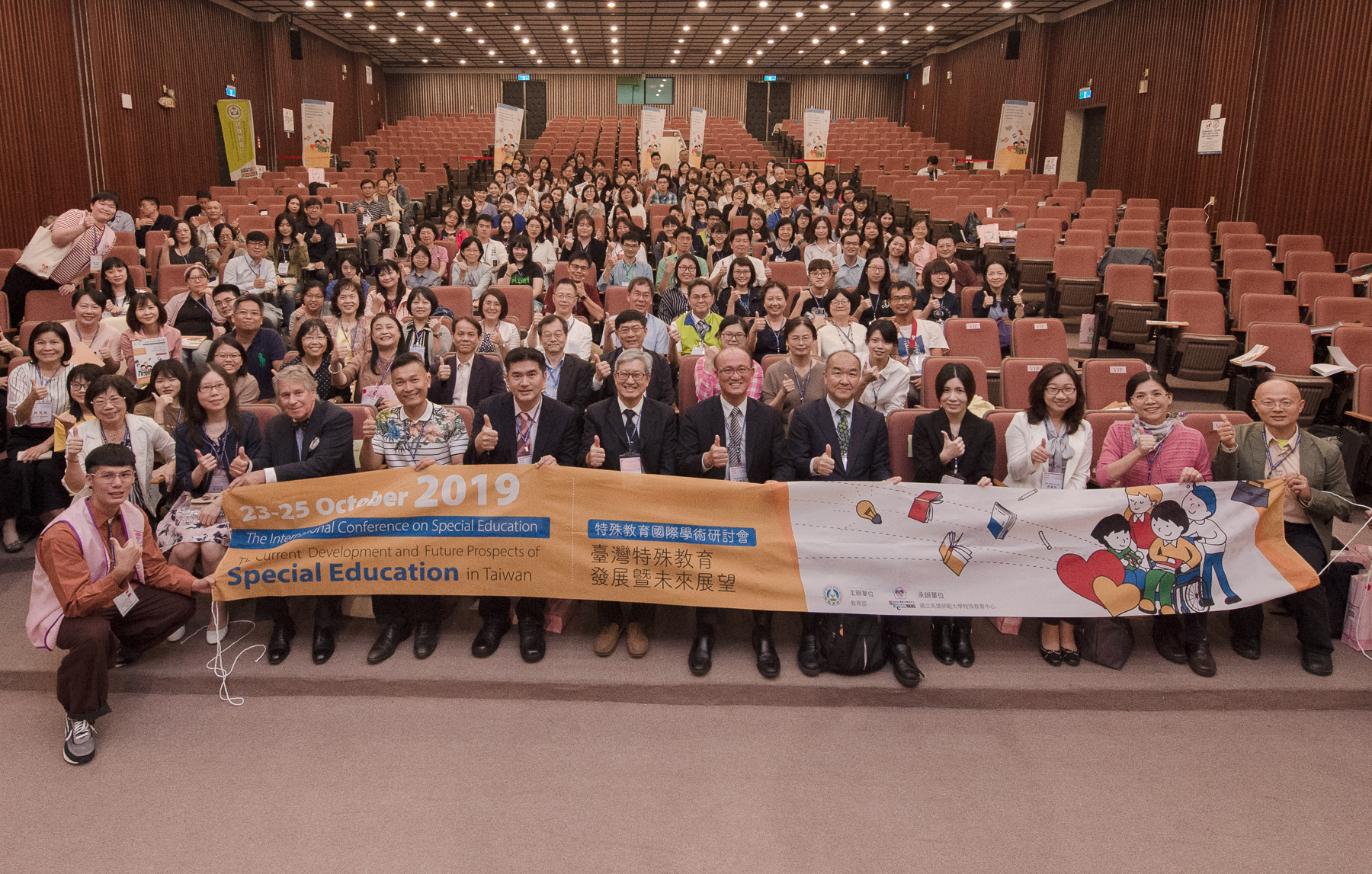Sharing Different Global Perspectives of Special Education The Ministry of Education holds the 1st International Conference on Special Education

To enhance the quality of special education and to be connected to the world, from 23 to 25 October 2019, the Ministry of Education holds the International Conference on Special Education: The Current Development and Future Prospects of Special Education in Taiwan, which invites renowned scholars in special education, including Professor Osamu Nagase, the first National Report Review Meeting Chairman of the Convention on the Rights of Persons with Disabilities (abbreviated as CRPD), Professor Fred Spooner from the Department of Special Education and Child Development, University of North Carolina at Charlotte, USA, Professor Emeritus Hsin-Tai Lin of both the Department of Special Education and the Graduate Institute of Rehabilitation Counseling of National Taiwan Normal University, and other important scholars. These scholars share essential topics related to the CRPD, the career transition of special education, special education students’ proper behavior of gender equity education, and inclusive education. Through different visions, understanding, experiences, and discourse, important policy and practical programs are offered so as to assist in capturing the future trends of special education.
Professor Osamu Nagase’s speech topic is “The Spirit of CRPD – its “general principles” and implications for education”, which takes a look at the education systems in Japan and Taiwan via the CRPD principles. He mentions that “inclusion” should begin with the educational concepts, structures, and strategies, so as to appropriately adjust course contents and teaching methodologies, and to integrate with barrier free learning environments to provide all students with fair opportunities of learning participation. Professor Fred Spooner shares his opinions on the topic of “Students with Severe Disabilities Accessing the General Curriculum”. He believes that the “inclusion” can enhance peer relationships, class participation, a sense of belonging, and the learning progress of students with disabilities. He also suggests to adopt the learning environment-oriented concept to carry out related guidance. Currently, the comprehensive learning design, cooperative learning, and professional teamwork have proved to be effective specific measures. In addition, he advises that general education should focus on academic learning, and should teach academic skills in order to enhance future employment, civil literacy, and living competencies in communities of students with disabilities.
Dr. Chien-Hui Lin, the Dean of the College of Education in National Changhua University of Education analyses the guidance knowledge, skills, and resources of gender equity affairs on campuses through the aspect of special education in colleges and universities. To enhance the gender equity literacy of students with disabilities, she suppose that gender equity education courses on campuses should be gradually developed with the following six dimensions: human development, interpersonal and gender relationships, individuals’ living skills, sexual behavior, sexual health, and society and culture.
As long as there is an increase of students with disabilities studying in universities, and more emphasis is placed on the employment of students with disabilities from the global world, Professor Emeritus Hsin-Tai Lin of both the Department of Special Education and the Graduate Institute of Rehabilitation Counseling of the National Taiwan Normal University delivers the research review on the topic of career and transition of students with disabilities in colleges and universities. She supposes that schools can evaluate current conditions, requirements, advantages, preferences, and interests of students with disabilities first, as well as understand their opinions and willingness and those of their parents, for respecting their own decision-making capacities. Schools and students can plan career transition goals together, which can be integrated into personalized supportive service programs to be carried out.
She also suggests schools to utilize schools’ and external related resources to assist students with disabilities to explore and choose career paths; to connect with enterprises in local places to organize workplace visits or experiences to enable students to have more specific understanding of future professions; to cooperate with labor and administrative departments, and career rebuilding systems to utilize career guidance evaluation to understand students’ potential and to offer further related supportive service strategies; and to combine with career rebuilding resources to invite related working members to design pre-services courses for students with disabilities. Through joint interdisciplinary cooperation and the related employment resources integration for students with disabilities, their paths of employment can be much smoother.
Additionally, Assistant Professor Chih-Shen Lo from the Department of Educational and Counselling Psychology and Special Education, the University of British Columbia, Canada talks about “Meeting Diverse Learning Needs on Campus: Using the University of British Columbia as an Example”. The Chief Executive Officer of Covenants Watch, Yi-Bee Huang, talks about the CRPD practices in local places with their own perspectives. The Chairman of the Welnet NGO in Sanda-shi, Japan, Hakuyo Ebara, with his own long-term service experience, shares inclusive activities and support services in schools for children with special needs in Japan.
Through these various global perspectives, scholars from all nations share innovative concepts and operational measures in local places, whilst also providing more novel measures for policy planning, and diverse and comprehensive programs of operational dimensions, which all enable special education in Taiwan to become more refined and practical.